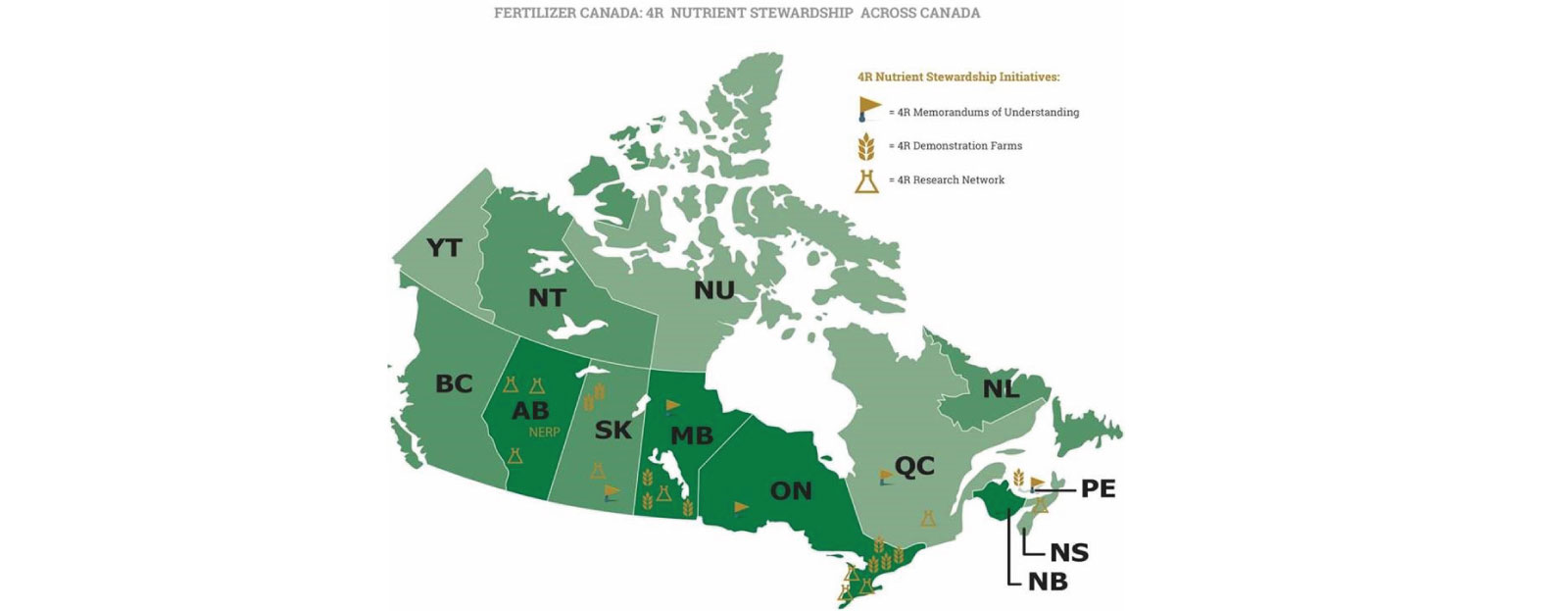Clyde Graham recently spoke about how Fertilizer Canada is working in partnership with ag retailers, several programs and partnerships to promote sustainability.
New regulations in the fertilizer industry have made it easier to register new products and have also streamlined the re-registration process. “Fertilizer Canada has worked alongside industry associations and government officials from the Canadian Food Inspection Agency for nearly a decade to update the Fertilizers Regulations,” says Mr. Graham, “These updates will ensure that our industry is able to provide innovative fertilizers to farmers, harmonize our processes with internal jurisdictions, and continue to prioritize the safety of our consumers. We’re committed to advocating for regulations and programs that allow the agriculture sector to remain globally competitive in this new, more difficult operating environment.”
Canada’s fertilizer industry is one of the most environmentally proactive, with 3.7 million acres of farms applying for 4R Nutrient Stewardship. Fertilizer Canada has goals of increasing that number to 15 million acres by 2025 as part of a 5-year strategic plan, the organization is also working with the agri-retail sector to ensure that ammonia fertilizer is used safely. This is done through auditing approximately 400 facilities and conducting 5-year reviews that post proposed changes to Fertilizer Canada’s website.
Ag retailers in Canada have been successful, providing good jobs and economic stimulus across the country, and Fertilizer Canada’s partnerships with CAAR and OABA highlight the socioeconomic impact of agri-retail in rural Canada.
Looking ahead, it will be beneficial to be more efficient with fertilizer use and reduce nitrous oxide emissions from fertilizer applications. With technical and scientific experts, Fertilizer Canada is working to see the industry-led 4R Climate Smart Protocol adopted within federal and provincial offset systems to provide Canadian growers with offset credit opportunities.
Who is Fertilizer Canada?
Fertilizer Canada represents manufacturers, wholesale and retail distributors of nitrogen, phosphate, potash and sulphur fertilizers. The fertilizer industry plays an essential role in Canada’s economy, contributing over $23 billion annually and employing 76,000 workers throughout the supply chain. In order to remain globally competitive, we are committed to supporting our industry with innovative research and programming. We take pride in advocating for sustainability, stewardship, safety and security through our industry-leading standards and Codes of Practice. As the foundation of Canada’s agri-food sector, we apply innovative solutions that positively impact the environment, the economy, and the social fabrics of Canadian life.
Related Articles
- Precision Technology for Fertilizer Mixing & Blending Precision agriculture is everywhere, even in fertilizer mixing and blending systems, where automated systems and software-based systems are quickly becoming a crucial element to the industry. (Sponsored Content) N...
- Myrna Grahn is our new Executive Director We are excited to announce the appointment of Myrna Grahn as the new Executive Director of the Canadian Association of Agri-Retailers (CAAR). She stepped into her new role as of March 25, 2024. Myrna brings a wea...
- Views, Considerations & Unknowns for 2024 With 2024 upon us, the agriculture trade show and seminar season is now in full swing. By Mitch Rezansoff, Executive Director With 2024 upon us, the agriculture trade show and seminar season is now in full swing....
- CN expands its central US reach Canadian National has agreed to purchase the agricultural Iowa Northern Railway. By Andrew Joseph, Editor With rival railroad company Canadian Pacific Kansas City (CPKC) valued at $104 billion market cap and pock...
- February 2024 issue of CAAR Communicator now available online The February issue of CAAR Communicator "I Love Ag" should be arriving in your mailbox. The feature article looks at brand marketing and standing out from the competition. The February issue of CAAR Communica...
 How to resolve AdBlock issue?
How to resolve AdBlock issue? 
Join the discussion...
You must be logged in as a CAAR member to comment.
Report
My comments